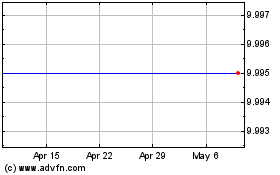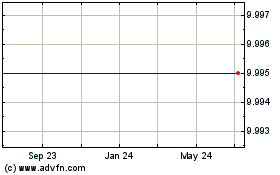US Senator Criticizes For-Profit Colleges For Use Of Military Education Funds
December 09 2010 - 5:12PM
Dow Jones News
A powerful U.S. senator is taking aim at for-profit colleges,
saying much of the sector has "atrocious" graduation rates even as
it rakes in large amounts of military education funds.
"It really is alarming, the huge growth in the amount of
military money, both [U.S. Department of Defense] and [U.S.
Department of Veterans' Affairs], and the schools really have
terrible dropout rates," Sen. Tom Harkin (D., Iowa) said on a
conference call with media after releasing a report that cited the
rapid rise of the schools' receipt of funding from the two
departments.
According to the Health, Education, Labor and Pensions
Committee, which Sen. Harkin heads, 20 for-profit colleges received
$521.2 million in education funds from those two departments in
2010, compared with $66.6 million in 2006. For-profit schools in
2009 enrolled just under one-quarter of all beneficiaries of the
Post-9/11 Veterans Educational Assistance Act of 2008, but received
more than one-third of the benefit payments.
Nearly two-thirds of students seeking bachelor's degrees at
private nonprofit schools finish within six years, according to
federal data measuring completion rates of first-time, full-time
students, while just 25% at for-profit schools do. A number of
for-profit schools say such figures aren't representative because
many of their students attend on a part-time basis or are returning
to school.
Apollo Group Inc. (APOL), the nation's largest for-profit school
with more than 470,000 students and among the largest recipients of
G.I. Bill benefits, got $76.9 million between August 2009 and July
2010, according to Harkin's data. A report issued last month by the
nonprofit Education Trust said its University of Phoenix has a
six-year graduation rate of 9%.
"There's something here that cries out for remedial action, and
we intend to do so early next year," Harkin said.
Harkin said in the report that the schools may be taking
advantage of veterans, using the military money to skirt a cap on
certain other federal funds on which the schools heavily rely. The
schools can't derive more than 90% of their revenue from Title IV
federal student loans--a ceiling against which many are
bumping--but military benefits don't count toward that limit.
Harkin created the report using data he requested from 30
for-profit schools, as well as information provided by the
Department of Veterans Affairs. While he didn't specifically name
colleges, the report includes a list of 30 for-profit schools and
the amount of G.I. Bill funding each has received between August
2009 and July 2010.
While the report didn't include any major revelations, UBS
analyst Ariel Sokol said in a client note, it is "an attempt to
gain momentum on legislation to include military" in the 90%
limit.
"The rapid growth of servicemembers, veterans and their families
in higher education is a very positive development that should be
celebrated, not denigrated," said Harris Miller, president of the
Association of Public Sector Colleges and Universities, and
industry group. "Attending private-sector colleges and universities
provides these students with the flexible, concentrated and
immersive education that prepares them to be competitive in the
workplace."
Harkin's report and promise of continued investigations comes as
the schools face a series of harsh regulations from the U.S.
Department of Education. Still, industry watchers say the tone in
Washington will likely soften once Republicans take control of the
House.
Meanwhile, Harkin said a revised version of a harsh report by
the U.S. Government Accountability Office "didn't change the
conclusions one bit." The initial report, released in August and a
partial catalyst for Harkin's data request, showed that recruiters
at a number of schools provided misleading or even fraudulent
information to agents posing as prospective students. The newer
report, issued on the GAO's website Nov. 30 and first reported late
Tuesday by The Washington Post, includes information showing the
schools also provided some helpful information to the undercover
staffers.
The GAO has said the overall message of the report remains the
same.
HELP Committee ranking member Sen. Michael Enzi (R., Wy.) sent a
letter asking the GAO to withdraw the report, saying the revisions
"raise a number of troubling questions" about testimony the agency
provided to the Senate.
-By Melissa Korn, Dow Jones Newswires; 212-416-2271;
melissa.korn@dowjones.com
Apollo Education Group, Inc. (NASDAQ:APOL)
Historical Stock Chart
From May 2024 to Jun 2024

Apollo Education Group, Inc. (NASDAQ:APOL)
Historical Stock Chart
From Jun 2023 to Jun 2024
